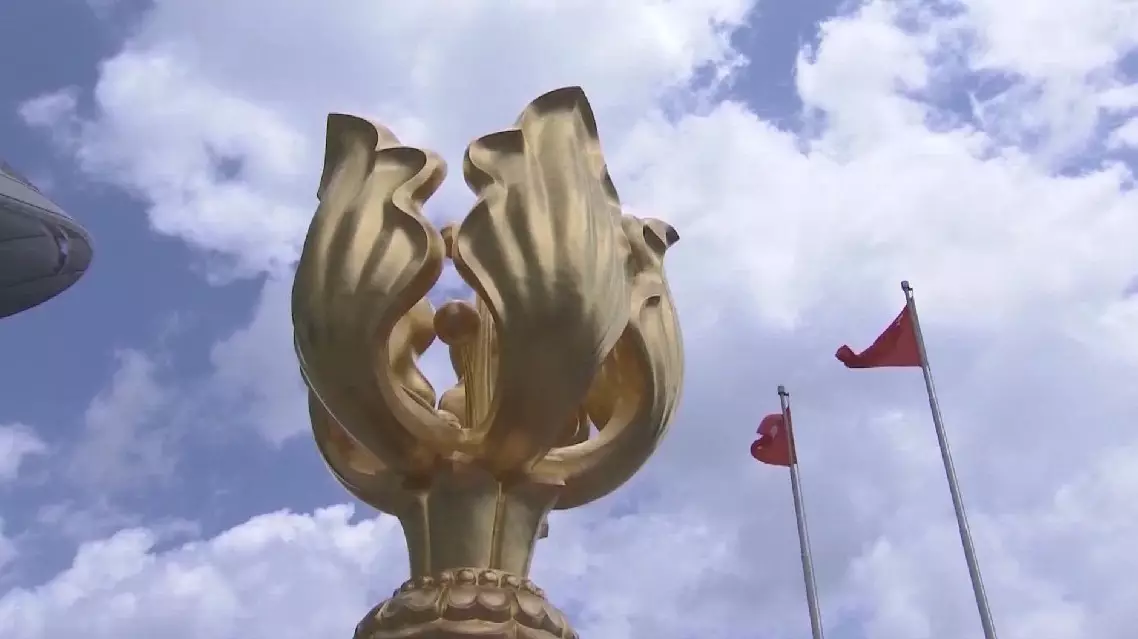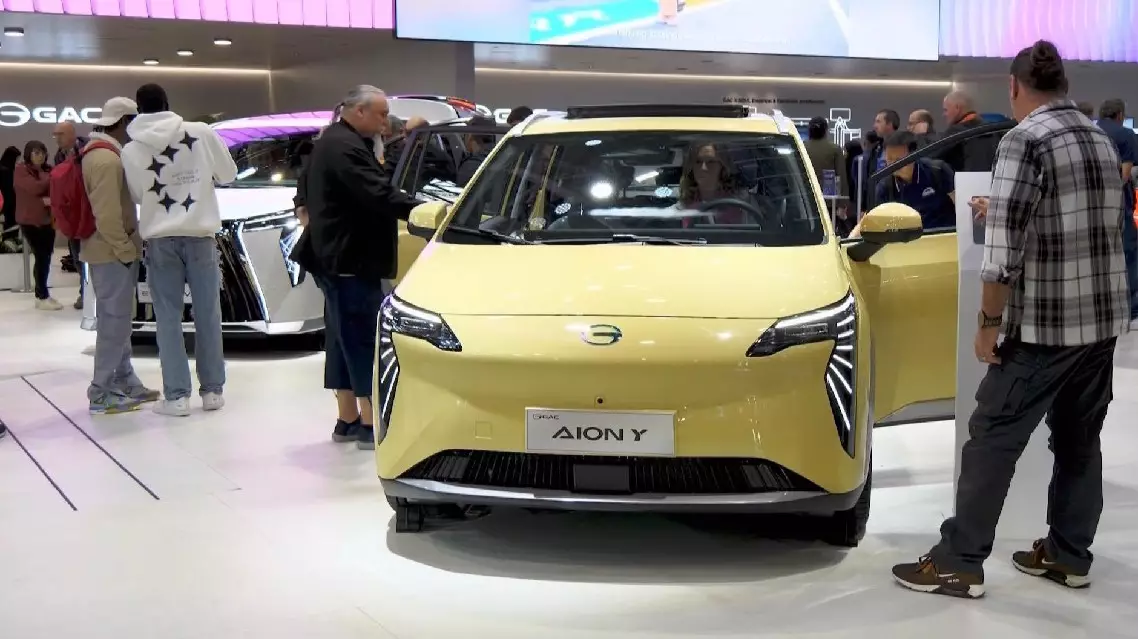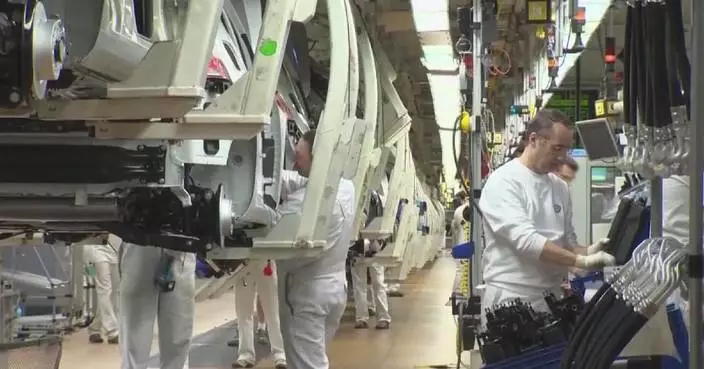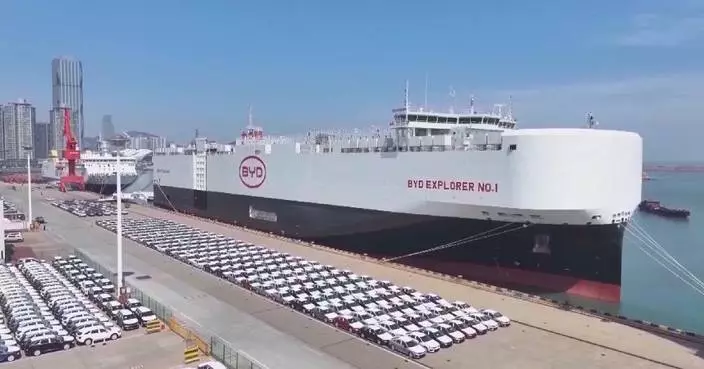Hong Kong's economy saw moderate growth in the third quarter of this year (Q3) as private consumption and external demand weakened, preliminary data showed Thursday.
Hong Kong's gross domestic product (GDP) increased by 1.8 percent in Q3, relatively lower than the 3.2 percent increase posted in the second quarter, the Census and Statistics Department of the Hong Kong Special Administrative Region (HKSAR) government said.
For the first three quarters of this year as a whole, Hong Kong's GDP increased by 2.6 percent in real terms year on year.
Private consumption expenditure decreased by 1.4 percent year on year, while total exports of goods saw a year-on-year growth of 3.9 percent. And, exports of services rose 2.4 percent compared to the same period last year.
The government says total exports of goods saw decelerated year-on-year growth alongside softening economic growth in some major markets, while exports of services continued to record a mild increase, supported by increasing cross-border economic activities.
Overall investment expenditure rose further in tandem with the overall economic growth, though private consumption expenditure continued to decline amid changes in consumption patterns of residents, a spokesperson for the HKSAR government noted.
The economy should continue to grow in the remainder of the year despite global economic uncertainties and trade conflicts. Hong Kong's exports of goods, monetary easing across major central banks and an improved outlook for the Mainland economy, following the recent stimulus measures, will help support sentiment and activities in the domestic market, according to the spokesperson.
It was highlighted that gradually easing financial conditions should bode well for fixed asset investment. The government mentioned a few factors that are conducive to spending by both residents and visitors in the domestic market, including a possible easing of the Hong Kong dollar alongside the U.S. dollar, as well as government initiatives to boost market sentiment and employment earnings.
Looking ahead, Hong Kong is seeking to build an international gold trading market to solidify its status as an international financial center. It will also establish a commodity trading ecosystem to drive maritime services and promote the development of related financial and professional services.

Hong Kong's economy grows 1.8 pct in Q3
China expressed strong disagreement with the European Union's decision to increase tariffs on Chinese electric vehicles, while Chinese car manufacturers are considering adjustments and alternative strategies in response to the tariffs.
China on Thursday reiterated its disagreement with the EU's decision to impose hefty extra tariffs on electric vehicles (EVs) originating from China, saying that it does not align with regulations of the World Trade Organization (WTO).
Starting Wednesday, the EU's extra tariffs on Chinese EVs, which have been raised from 10 percent to as high as 43.5 percent, will apply for a period of five years.
"There are numerous unreasonable and non-compliant practices in the EU's investigation into Chinese electric vehicles. The Chinese side has rejected all the allegations, and provided substantial feedback and evidence, but the EU has failed to give full thought to these submissions. The ruling does not align with WTO regulations and fails to address the core concerns of the Chinese and European automobile industries," He Yadong, a spokesman of the Ministry of Commerce (MOC), told a press briefing.
The EU's decision will have immediate and significant impacts on the prices and competitiveness of Chinese EVs, according to experts.
While speaking at the 2024 Paris Auto Show, car manufacturer executives said they have not given up on the European market and are considering adjustments.
"You can't change the wind, but you can certainly adjust the sails. We'll definitely make some adjustments based on the tariffs," said Feng Xingya, president of the Guangzhou Automobile Group Co., Ltd. or the GAC Group.
In light of the EU's recent trade measures, they are becoming more cautious about setting up production plants in Europe.
"Whether local production can resolve the issue of tariffs is a complex question, to which we do not yet have an answer. The reasoning behind producing locally due to higher tariffs doesn't hold, but I believe the logic of producing where there is demand is valid," said Feng.
Dolly Zhang, a trade specialist who has helped Chinese car-makers go international for over 20 years, said that Chinese automakers have always been preparing for risks and challenges.
"Before the [EU's] trade remedy, they (Chinese car-makers) had already actively [been] looking for different route to the market, different production options, different ecosystem and cooperation, in order to prepare for different trade challenges," said Zhang, a partner of indirect tax customs and global trade of Deloitte China.
Despite of the trade tariffs, the Ministry of Commerce said China will continue to cooperate with other countries to maintain the stability of the global EV supply chain and pursue the green transformation.

China disapproves EU EV tariffs, carmakers prepare alternative strategies










